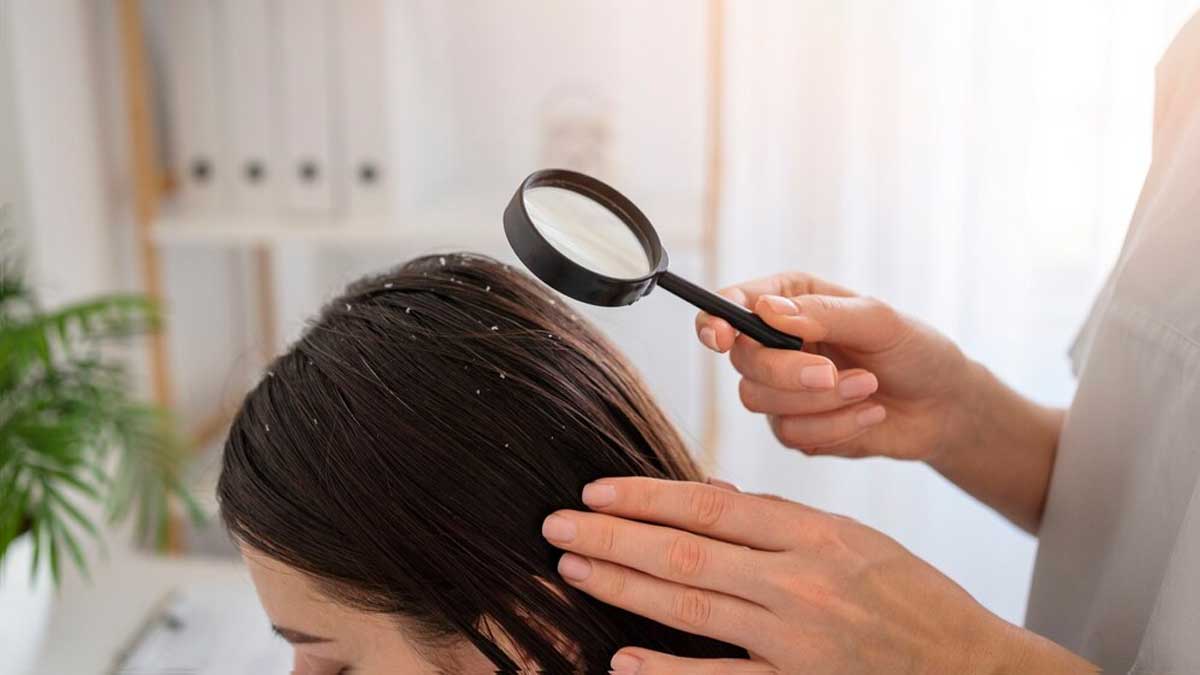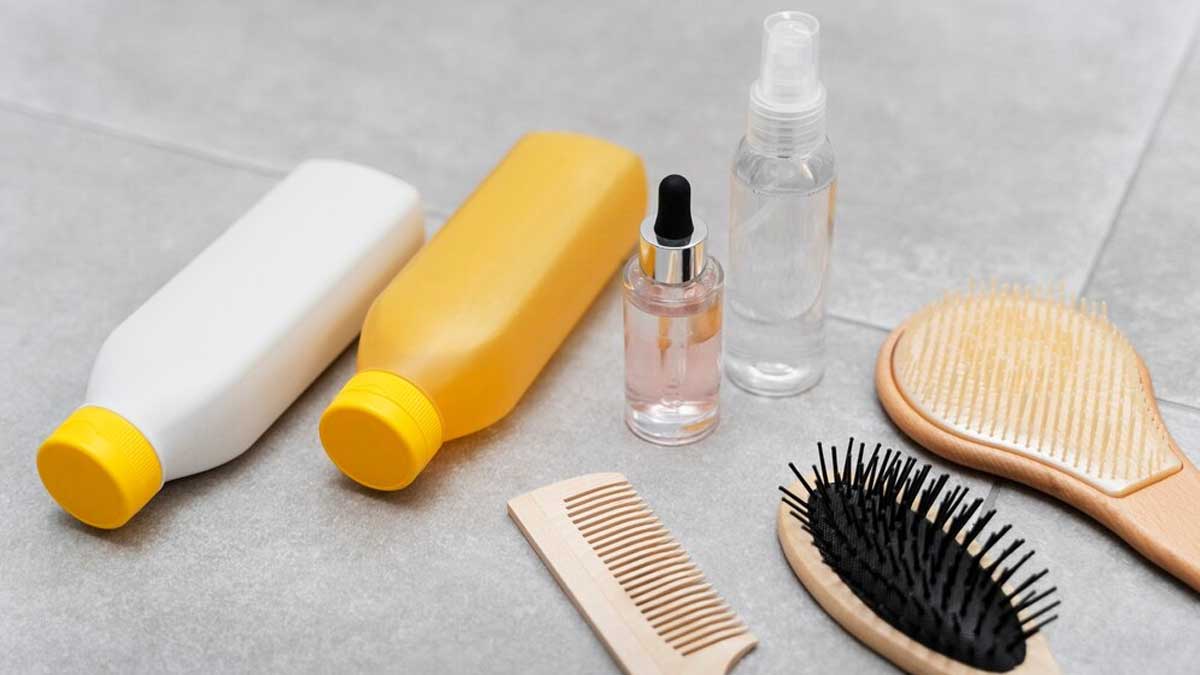
When your scalp starts acting up, it can be a real head-scratcher. You may be wondering if it is dandruff or just a dry scalp? Both can make you itch and sprinkle flakes on your favourite dark shirt. But they're not the same, and understanding the difference is the key to dealing with both of these. We spoke to our expert Dr Neha Khuraana, MD, Board-certified Dermatologist and Founder, House of Aesthetics, who explained the difference between the two.
Dry Scalp vs Dandruff

Dr Khuraana said, “A dry scalp is all about lacking moisture, while dandruff is more about an oily scalp and yeast overgrowth on your head.”
What Is A Dry Scalp?
Dr Khuraana said, “A dry scalp is like when your skin gets really thirsty. It gets all flaky, and your hair looks a bit sad because it needs more natural oils. If you often have dry skin, you're more likely to have a dry scalp. It can happen when the air is dry, you wash your hair a lot, or if you have skin issues like eczema.”
What Is Dandruff
Dandruff happens when your scalp sheds skin cells. Dr Khuraana added, “Those flakes are just dead skin cells. But the real cause is a yeast called Malassezia, which thrives on the extra oil your scalp is producing. So, your skin cells build up, and the flakes start to fall. It's an oil and yeast bonanza, and it leads to dandruff.”
According to the Indian Journal of Dermatology, nearly half of all people in the prepubertal age group, regardless of gender or ethnicity, suffer from dandruff. Also, all populations, regardless of their geographic location, would have experienced dandruff at some point in their lives.
Also Read: Can Oiling Your Hair Reduce Dandruff: Expert Explains If Its A Myth or Fact
Spot the difference: Dry Scalp vs Dandruff

Dr Khuraana said that both these hair issues have similar symptoms - flakes and an itchy scalp. But here's the difference:
- Dry scalp flakes are smaller and whiter
- Dandruff flakes are larger, maybe yellowish, and can look a bit oily. Your hair might even seem greasier
When To Consult A Professional?
Usually, you can handle dry scalp and dandruff on your own at home. But there are times when it gets a bit tricky. Dr Khuraana added, “Some other issues can act like dandruff, such as scalp psoriasis, which makes your scalp red, flaky, and itchy. There's also a stronger form of dandruff called seborrheic dermatitis that can really upset your scalp. When things get this tricky, it's best to talk to a doctor.”
Also Read: Dry Scalp Woes? Here Are Effective Home Remedies That Can Provide Relief
How To Tackle The Issues?

If it's dandruff, you can handle it yourself. Get an anti-dandruff shampoo and use it regularly when you wash your hair. Look for one with pyrithione, and you're good to go. Dr Khuraana added, “Avoid coal tar shampoos if you have light hair because they might change your hair colour. If you prefer a natural approach, try tea tree oil shampoos with germ-fighting powers. Just remember, stick to your routine.”
Dr Khuraana highlighted, “If dryness is your issue, you can take a step back with the shampoo. Wash your hair less often, choose gentler shampoos, and consider one with extra moisture. A humidifier can be your new buddy, as it keeps your skin hydrated. And don't forget to drink enough water – it's good for your skin, including your scalp.”
Bottomline
Dr Khuraana concluded, “While dandruff can be a bit of a challenge, the good news is that it's usually manageable. And if you're dealing with a dry scalp, that's manageable too! So, don't worry too much about those flakes, because you can have a healthier and itch-free scalp with the right care, whether it's dandruff or dryness.”
[Disclaimer: The information in this article is shared by a registered healthcare professional and is for informational purposes only. Hence, we advise you to consult your expert if the issue persists for a longer time.]







